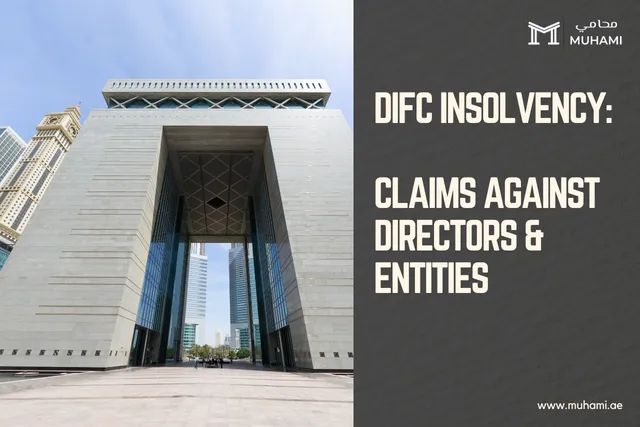An overview of third party litigation and arbitration funding in the UAE

What is Third Party Funding?
Third party funding in litigation or arbitration is where someone who is not involved in a case provides funds to a party in exchange for an agreed percentage in return.
Examples of specialised third party funders include insurance companies, investment banks, hedge funds and, recently, law firms have entered the market.
Benefits of Third Party Funding
A. Third party funding can increase access to justice.
B. Funders assess a party’s chance of success.
C. Funders can fund the whole or part of the claim.
D. Consider enforcement of Court judgments. Funders will want to know if the respondent is able to meet the claim, costs and interest.
E. Consider applications such as Security for Costs.
F. Disclosure of the funding agreement and the identity of the funder to the opponent retains transparency and avoids conflict. Disclosure also shows the opponent that an independent third party has faith in the merits of the claim.
Due Diligence Process
A. Funders will adopt different approaches to pricing.
B. Funders will want as much information as possible to make a decision, which may include a Case Summary, Pleadings, Correspondence, Counsel’s Opinion, Costs Schedule, Timetable to Trial a Detailed Budget, cost of any Expert Witnesses, Complexity of the Case.
C. Counsel’s legal advice/opinion should cover both liability and quantum because the funder will need to be satisfied of the value of the claim.
D. Every funder will have different specialisms, terms, conditions, requirements and financial expectations.
Approaching Third Party Funders
Practical Tips
A. Confidential information should be shared with caution with a funder.
B. Claimants should carry out a background check on a funder (funder’s credibility/due diligence process).
C. The Funder needs to be satisfied about the liability and the value of a claimant’s claim.
D. The claimant/counter-claimant should consider practicalities such as the funder’s right to terminate the agreement.
E. Legal representative to manage the relationship between the claimant and the funder.
Why Is Third Party Funding Used?
A. To assist individuals who have a meritorious claim but cannot afford the costs of litigation.
B. To assist companies so that they do not suffer the risk of costly, lengthy litigation.
Points Against Third Party Funding
A. A successful claimant is required to pay a proportion/percentage of the recoveries to the funder.
B. Possible undue influence on the part of the funder on considering settlement.
C. Substantial costs can initially be incurred when presenting a case to the funder.
The Position in the UAE
A. Funders want to determine how safe a jurisdiction is before investing.
B. The UAE and the Middle East have not previously been traditional markets for litigation funding, but there is increasing development in the UAE.
C. With the introduction of the Financial Free Zone (DIFC & ADGM), funders are finding it an increasingly attractive forum and the DIFC Court is responsive to the needs of the legal market.
D. Infrastructure, Energy Sector and the Construction Industry can benefit from third-party funding.
E. DIFC Court will monitor the conduct of the parties to ensure that third party funding is appropriately regulated.
Any Questions?
Connect with lawyers and seek expert legal advice
Share
Find by Article Category
Browse articles by categories
Find Article by Practice Area
Browse articles by practice area
Featured Partnership
Lawcloud
LawCloud: All-in-One Legal Practice Software
Related Articles

DIFC Insolvency Proceedings
Insolvency in the Dubai International Financial Centre (DIFC) can be complex, e…

DIFC Insolvency Proceedings
Insolvency in the Dubai International Financial C…

Why Trademark Enforcement Strategies Ma…
Why Trademark Enforcement Strategies Matter in the UAE The UAE is a very vib…

Why Trademark Enforcement Strategies Matter in th…
Why Trademark Enforcement Strategies Matter in th…

The UAE’s Dual Layer Dispute Resolution…
The United Arab Emirates (UAE) features a sophisticated and multi-layered dispu…

The UAE’s Dual Layer Dispute Resolution Framework…
The United Arab Emirates (UAE) features a sophist…
